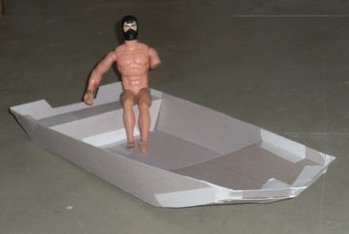|
If you are traveling in the Western Hemisphere, (Canada, Mexico, Caribbean, Central and South America): 
-
ALL persons*, including U.S. citizens, traveling by air between the United States and Canada, Mexico, Central and South America, the Caribbean, and Bermuda are required to present a valid passport, Air NEXUS card, or U.S. Coast Guard Merchant Mariner Document.
-
On June 1, 2009 all U.S. and Canadian citizens who are 16 and older traveling between the U.S. and Canada, Mexico, Central and South America, the Caribbean, and Bermuda by land or sea (including ferries), will be required to present a valid passport or other alternative documents as determined by the Department of Homeland Security. U.S. and Canadian citizens who are 15 years old or younger will still be allowed to travel with just a copy of their birth certificate, as will teens between the age of 16-18 if they are part of an adult supervised school, religious, cultural or athletic group.
*Military personnel traveling under orders may present photo id and orders. Family members must present a passport (with the exception of children 15 and younger arriving by land or sea).
Lawful permanent residents (LPR’s), refugees, and asylees will continue to be able to use their Alien Registration Card (Form I-551), issued by DHS, or the Travel Document issued to persons with refugee or asylee status to apply for entry to the United States. LPR’s may still need to present a passport for entry into a foreign destination. For this reason airlines may deny boarding to LPR’s traveling without a passport.
If traveling from outside the Western Hemisphere, all U.S. citizens MUST present a passport, including children and infants.
Until June 1, 2009:
Travel by Land or Sea – If a U.S. citizen does not have a passport or a copy of a birth certificate, the following may be accepted as proof of citizenship: – A U.S. state or federal government-issued birth record (note: hospital-issued birth certificates are not acceptable) or naturalization paper. If a U.S. citizen child was recently born, and no copy of the birth certificate is available, bring whatever paperwork the hospital has given you as a record of the birth. While certified copies of Birth Certificates are preferred, and will speed your entry into the U.S., they are not required at this time. If you do not have a certified copy of your birth certificate, and want to get one, they can be requested from the Vital Records office in the State where you were born.
A Certificate of Citizenship, or Certificate of Naturalization are also accepted [note: notarized photocopies or notarized fax copies of such certificates are acceptable, but affidavits of citizenship and voter registrations are not).
Birth Certificates, and Citizenship or Naturalization Certificates will not be acceptable for persons 18 or older unless accompanied by a government issued photo ID.
For information about what documents are required for a U.S. resident to enter a foreign country, we advise you to contact the embassy or consulate general of the country you intend to travel to in order to find out what documents they require you to have for entry. It is important to understand that some Western Hemisphere countries require you to have a passport for entry into their country, even though the U.S. does not require you to have one to re-enter the U.S. |



